Well, the conference is over. I got five minutes with Greg in his final session today, so clearly, 99% of my concerns below could not be discussed. Even in the five minutes I got with him, I still feel like he didn’t hear or understand me. I am a little disappointed by this, because I was invited to the conference to converse with him about it in a session, and they gave me 5 minutes. But whatever … let’s move on.
I attended the ReKnew conference because I have been writing and teaching a lot about how to understand the violence in Scripture, and I thought this would be a good conference to attend. The conference is focused on the three books Greg Boyd published this year, The Crucifixion of the Warrior God (2 vols), and the shorter summary of those two books, Cross Vision. I have read all three books in their entirety, and some sections multiple times. I also listened to Greg’s explanation in the ReKnew conference, and have read numerous of his blog posts and listened to scores of his podcasts on this topic.
This post contains my response to the information in the books, blog posts, podcasts, and the conference.

I apologize for the unprofessional, unpolished nature of this post. It is likely filled with incoherent thoughts, typos, grammatical mistakes, and lots of repetition. The ideas below are basically a hastily-typed compilation of notes that I have scribbled in about 15 different places over the last several months.
Let me begin with a few areas of agreement
Ultimately, I agree with almost everything in Volume 1 of CWG. I am in absolute agreement that it is most important to interpret the text as we have it, rather than what historical event might (or might not) exist behind the text. It is the text that is inspired, not the historical event. God gave the text to us as it is for a reason – because it points us to Jesus Christ, just as it is written.
I agree with Boyd’s Conservative Hermeneutic Principle, that it is best to be more conservative than liberal when it comes to thinking about inspiration and the authority of Scripture. I agree that the Bible is inspired and infallible. That it is God-breathed in all its words and ideas. I agree that it is primarily when we begin with this framework that we work hard to understand why a troubling text was included in the Bible. I believe many scholars miss out on some of the most important truths of Scripture because they are too willing and ready to write something off as “error.” To write off various portions of Scripture as error is to miss out on some of what God wants to teach us about Himself, when viewed through the lens of Jesus Christ and Him crucified. Boyd calls this the “cross vision;” I call it “crucivision.”
Speaking of the crucivision lens, I agree that God looks like Jesus. That Jesus most fully reveals God to us. That we must read Scripture and think about God through the lens of Jesus Christ and Him crucified. I have written about this in The Atonement of God, and Nothing but the Blood of Jesus.
Summary of my areas of disagreement
With these agreements (and many more I did not mention), I do have some areas of disagreement. And while many of these might appear to be merely semantic on the surface, there might not be any field of study where the meaning and use of words is more important than with theology. Word matters, and when it comes to theology, it is the precise words that matter most.
There were numerous times I cringed at some of Boyd’s terminology and ideas, such as his way of describing unregenerate people as “unrepentant” (p. 787), and his acceptance of annihilation (p. 787), but in regard to the overall purpose and goal of the book, I am most concerned with three of Boyd’s four Principles of the Cruciform Hermeneutic.
The first principle is the Principle of Cruciform Accommodation. In my view, I would change this to the Principle of Cruciform Incarnation.
Boyd says that out of self-sacrificial love, as seen in Jesus on the cross, God stooped or accommodated to human sin and failures. I am not a huge fan of the terms “stooped” or “accommodated.” While I agree that the image of parent stooping to look a child in the eye and talk to a child on his or her level is helpful when some people think of how God interacts with us, I also think that this image or idea does some damage to how it is that we humans actually think of God.
When we think of God stooping, we think of a God who is so far above us, He is almost beyond reach. And while God is, in many ways, superior to us, the incarnation of Jesus shows that God is not “up there,” but is already “down here,” in our midst, at our level. The incarnation reveals what God has always been doing with humanity. He has not gone from up there down to here, but has always been with us in a humble and quiet way.
But when it comes down to it, I don’t mind “accommodation” too much. It is probably not worth quibbling over. The terminology of the second principle, however, I do think is worth some quibbling…
The second key idea of Boyd’s cruciform Hermeneutic is the Principle of Redemptive Withdrawal. In my view, I would call this the Principle of Redemptive With-us, or Redemptive Following. Neither is as catchy as Greg’s term, but is in this area where I take most exception with Boyd’s terminology, so something else is needed other than “withdrawal.”
Boyd frequently writes that God withdraws from us, and he uses numerous synonyms to help explain this view. He writes that God abandons (p. 769, 778, 782), leaves us alone (p.741, 874), withdraws his presence (p.889) to “let sin have its way” so that we receive the punishment “we deserve” (p. 903). These sorts of statements in in the books reminded me of Job’s friends.
While I agree that the Bible does use such terminology, I think this is a perfect case where what we see occurring on the cross reveals that “something else must be going on.” I do not believe that God ever leaves or forsakes us. He never abandons us or leaves us alone. He never withdraws His presence. Yes, sin bears its own punishments, and yes, the consequences of sin fall upon us, but this is not because God backed away to let us receive the punishment we deserve.
This way of thinking can cause horrible psychological and spiritual damage to people who have already been abandoned by loved ones, or feel that they have sinned so bad, God has withdrawn from them and has left them alone to face the fallout from their sin. It is far better to provide hope and healing to such people, and remind them that God will never withdraw, but is always with us. It is no help whatsoever to say, “This hurts God more than it hurts you” (cf. p. 904).
What happens when we experience the suffering from sin is that God warned us about the pain and destruction that can come through sin (though we often don’t hear it), and we go our own way anyway. In such situations, God does not let us go without coming along as well. He lets us choose our own destructive routes, and He chooses to join us in the mess and pain of sin. This is what we see in the incarnation and on the cross. He walks with us into the suffering and shame, and bears it along with us, protecting us from what He can. This is what we see in Jesus.
I found it strange that he did not address this objection in his chapter on common objections (chapter 18). I am not sure what this means. But let me move on.
Third, Boyd argues for the Principle of Cosmic Conflict. I prefer to think of the Principle of Creation Chaos.
Yes, there are forces and powers that cause evil in this world. But I think that most of these forces were initially supposed to be subject to the will and mind of humankind, and due to going our own way, they have spun out of control. Just as a car is not evil when it kills someone after spinning out of control of the driver, so also, creation is in chaos because the human drivers have lost control.
Satan, as the accuser, is one of these powers. So also are the “fallen” angels. I owe much of my thinking in this area to Walter Wink, but I go further than he does, and give the powers a bit of will, though it would be by the subconscious will of a human collective.
Finally, Boyd writes about the Principle of Semiautonomous Power. This is the idea that God gives humans free will and power (even power-filled items) with which to carry out His will, and sometimes people misuse and abuse this power in evil ways. I agree with this. I think this principle here helps explain most of what goes wrong in this world, and much of the evil human violence we see in Scripture. No complaints from me here!
With these four initial criticisms in mind, let us step a bit deeper into the book and discuss some of the questions that arose for me as I read.
Is Progressive Revelation Real?
I know that the idea of Progressive Revelation is a “given” in most of modern theology, but I have never been convinced. The more I study Scripture in light of culture and history, the more convinced I become that we today might know less about God than most of the generations in Biblical history. The assumption that we know better today because we are more technologically advanced, are further along in time, or have more books is what C. S. Lewis called “chronological snobbery.” We look down out modern noses at the people of the past and think that they were ignorant fools who knew nothing of God and His ways, but we, with all our research and writing, we now know better.
But do we? I am not so sure.
Yes, I know Paul writes about seeing in a mirror dimly (1 Cor 13:12), that the prophets longed to see our day (Matt 13:17; Luke 10:24; 1 Pet 1:10), and similar verses. I also agree that Jesus Christ is the supreme revelation of God and that He most fully explains God as no other generation has ever known. But does this mean there was a progression in thinking from the time of Abraham up to the time of Jesus, and that this progression has been marching forward ever since?
No, I would say that there was a regression from the time of Adam to the time of Jesus, when He burst on the scene as a ray of light in the darkest of nights, and we have been trying to make sense of that light ever since. If there has been any progression since the incarnation of Jesus, I do not think we have progressed (or retraced the path of regression) much past the later prophets. We have definitely not returned to what Moses and Abraham and Adam knew about God (John 8:56; Exod 33:11).
So I am not a fan of progressive revelation. Instead, let us humbly admit that we know nothing, and return to sitting at the feet of our Master while He reveals Himself to our spirits and through the pages of Scripture.
Is the Cross the Supreme Revelation of God?
I think we can all agree that Jesus is the perfect and fullest revelation of God. Yet the emphasis seems to be on the revelation of God in the crucifixion, that it is on the cross where God is most fully manifested.
I tentatively agree with this, but primarily in reference to violence. The cross is an extremely violent event, and so when it comes to understanding God’s involvement with violence, the cross is the best revelation of this truth.
Yet the crucifixion is only one event in the life of Jesus. We must not overemphasize the crucifixion, as if it were the only event in the life of Jesus, or as if everything else in His three-year ministry was just prologue. No, the entire life of Jesus, from conception (which precedes birth) to ascension (which follows the crucifixion and resurrection) is essential for understanding what God is truly like.
Once we recognize that the entire life of Jesus reveals God to us, this then raises other questions.
Is God Stooping?
Over and over we are told that God stooped, accommodated, or allowed certain things to happen because the people were not ready for something better, different, or more godly. But I am very uncomfortable with all such language, because it seems to deny the truth of the incarnation. It seems at times that while Boyd places a wonderful (and often neglected) emphasis on the crucifixion, he has somewhat neglected the incarnation. Even the word “stooping” seems to imply that God is “up there” above us, and He “stoops” down to our level. But this is not the truth of the incarnation. The truth of the incarnation is that God is always with us.
If Jesus, in His entire life, reveals to us what God is like, then we cannot say that God “stooped” to become human, but rather that since the incarnation reveals what God has always been like, then God has never stooped, but has always been with us. In Jesus, we don’t see a God who has come down to us, but rather, we see God with us. He did become this way; He has always been this way.
Let me put it another way. John writes that God is love (1 John 4:8). We could say that love is of the essence of God, that love is a central and defining characteristic of God. But does love exist in a vacuum? No. For there to be love, there must be an object of love. This, I believe, is one way of proving the truth of the Trinity, but that’s another topic.
One essential characteristic of love is give and take. Love requires interaction, collaboration, listening, following, caring, freedom, flexibility, and risk. Love involves looking out for the interests and needs of others.
It is sometimes taught that God limited Himself in creating other beings with free will. But did He? In giving some genuine “say-so” to created beings, is this actually a self-limitation of God, or is it rather the definition of love? In giving freedom to His creatures, God did not limit His own freedom, and therefore “stoop” to our level, but rather, was true to the character of love.
And this is exactly what we see in Jesus. As God incarnate, He did not stoop to join humanity, but continued in His loving relationship with humanity in a way that we could more fully grasp and understand. The incarnation of God is not the stooping of God; it is the relating of God, which He has always done.
Some might wonder about Philippians 2 and kenosis. Did Jesus “empty Himself” of his divine attributes? Several things can be pointed out which will move us in the right direction. First, Paul brings Jesus up as the perfect example of love that seeks the good of others over oneself. This is not “stooping” to the other person’s level (such an idea is actually quite proud), but is just what love does (Php 2:1-4). Since Jesus does this with us, we know that this is what God has always done this with us as well. He has not stooped; He has loved.
Beyond this, however, it does not seem best to understand kenosis in 2:7 as a reference to Jesus emptying Himself of His divine nature. Such an idea becomes very dangerous to our Christology, and hence, to our Theology Proper. If Jesus perfectly reveals to us what God is like, and Jesus emptied Himself of His divine nature, then this would mean that God also emptied Himself of His divine nature. But what does that mean? How can God have less than the full divine nature? It seems best, therefore, to understand Paul’s reference here (which is probably an early Christian hymn) in light of the Platonic philosophical idea of “forms.” But contrary to some scholars who have noted this connection, I do not believe that Paul is agreeing with Platonic thought, but rather disagreeing. I believe Paul is saying that although Greek philosophy uses the concept of “form” to think of god as this perfect, unchanging, unfeeling deity, this is not what we see in Jesus Christ. Instead, though Jesus was perfectly equal with God, we see a God who becomes a nobody, a servant, and joins humanity in life. He humbles Himself, even to the point of death on a cross. God, in Jesus, did not stoop to become this, but revealed to us in Jesus that this is what He has always been like. Jesus did not seek to be equal to the form of God, that is, to the perfect, unfeeling, uncaring, unchanging ideal of god that human philosophy presents us, but instead, through the incarnation, revealed to us what God is really like.
I am not saying God is physical. That God is human. We know that God is Spirit. We also know that there are aspects of God that could not be fully represented in human form, such as His omnipresence. But I think this helps explain why Jesus promised to send the Holy Spirit.
Anyway, I don’t believe God stoops or accommodates as people usually understand those words. I believe that, out of perfect love for humanity, He has joined us in our journey through life. This is not Him acting as “less than God” but is instead Him acting as the “perfectly loving God” that He truly is, as revealed in the incarnation of Jesus. God does not accommodate His creation, but is, in fact, somewhat accountable to His creation. He is a suffering God, who willingly takes our pain upon Himself out of love. To explain God’s actions in Scripture as “accommodation” is just as much an evasion of what is really happening as it is to call some uncomfortable description of God as an “anthropomorphism.” We cannot explain things away so easily.
So Does God Withdraw?
No. There is no withdrawal. There is only God with us. He never leaves us nor forsakes us. He never abandons us or lets us go our own way without Him.
Yes, He pleads with us and warns us and instructs us to not go down certain paths in life, but when we ignore His pleading and rebel against His instructions, and go in the way He has warned us not go, God does not throw up His hands and say, “Well, I’ll be waiting here when you come crawling back to me in pain and agony from how you messed up your life.” No, when we choose to go our own way, God, out of His great love for us, does not withdraw from us, but goes with us. He does not abandon us to our sin, but dives headlong into the mess of sin with us.
This is what we see in the incarnation and the crucifixion, and is also what we see everywhere in Scripture. The priesthood, the law, the sacrificial system, and the monarchy were not what God wanted and not God’s plan or idea. But when we humans turned our back on what God desired and wanted (a loving relationship with each and every person), God did not accommodate us, or stoop down to let us have our own way, or even withdraw from us so that we were abandoned in our rebellion. No, God, out of His great love for us, said, “Well, it’s not my way, but if that is what you want, we will go down that road together for a while. Are you ready?”
Though God tells us the direction in which we should go, and warns us of the dangers down other roads, when we persist in going our own way, God does indeed let us go, but He does not let us go alone. Instead, He goes with us, so that He might do all He can to protect us from the evils of our own choices. Due to genuine freedom, of course, He cannot protect us from all harm.
The great problem, of course, is that while God goes with us wherever we go, we humans rarely sense or see His presence with us. Though He is always with us, we feel as if He has abandoned and forsaken us. We feel His has left us to our own devices out of disgust and anger at our sin. We regularly cry out to God, “Why have you left me? Why have you allowed this to happen? Where are you, God? Why have you forsaken me?”
So the cry of Jesus on the cross about His own forsakenness is not the cry of Jesus the man being forsaken by God, but the cry of Jesus the God finally feeling the despair of humanity at not sensing the presence of God. Did God forsake or abandon Jesus? No! Jesus is not God-forsaken, and neither are we. God did not abandon Jesus on the cross, and He does not abandon us. God did not withdraw from Jesus when He became sin for us, and He does not withdraw from us when we commit sin against Him. Go here to read more: https://redeeminggod.com/why-have-you-forsaken-me/
Even if Greg is right that God abandoned Jesus to sin (which I do not agree with), wouldn’t it be better to say that God abandoned Jesus to sin so that God did not have to abandon us to sin? In my view, it is best to say that God never abandons anyone. Not Jesus and not us. “Something else is going on” when Jesus cries out from the cross, “My God, My God, Why have you forsaken me?”
The flood event in Genesis 6-8 is one example of how Greg Boyd deals with the violent texts of Scripture. He says that since wickedness had spread over the face of the earth, all humanity had become corrupted by the sons of God (Gen 6:1-8), and so Noah was literally the last pure man on earth, and so to save, rescue, and deliver humanity from complete destruction, God had to step back from humanity and withdraw His protection so that sin would destroy humanity and a new creation could occur through Noah and his family, whom God rescued and delivered from the flood through the ark. Boyd argues that God’s only activity in the flood was to rescue and deliver Noah. The flood waters came on their own as God stepped back.
I am extremely uncomfortable with such an explanation of the flood account, or such a way of reading Scripture. My discomfort is not because Boyd’s thesis is new, but because I think it ultimately violates one of his preliminary points, that all of Scripture must be read and interpreted through Jesus Christ, and especially through Jesus Christ on the cross. I do not believe that what we see on the cross is God withdrawing from sin, but rather jumping head-first into it.
God does not withdraw from sin. He dives into it. Since Jesus reveals to us what God is really like, and since Jesus is the incarnation of God, then Jesus also reveals how God deals with sin. God does not back away from sin to let it have its way. No, God, in Jesus, enters fully into our sin, not to participate in it, but to deliver us from it. He does not draw away; He dives headlong into the mess.
This view of mine raises two possible objections. First, some say that just as a loving parent must sometimes withdraw from a child to let the child grow and mature, or just as sometimes a loving parent must draw back from a rebellious child so that the child can learn through pain what they have failed to learn through instruction, so also God, as a loving Father, withdraws from us at times for similar reasons.
Yet we must look at the reasons why parents “withdraw” from their children in such situations. Typically it is so that the rebellious child will not harm other family members. Similarly, it could be argued, God wants to protect the children in His house, so He “kicks out” the rebellious one.
This might work, except for the fact that when God “withdraws” or “kicks a rebellious child out,” usually a huge disaster follows in which lots of children (and animals) are killed in horrible ways. Just look at the flood, or the Ten Plagues, or Korah’s Rebellion, or any number of “divine withdrawal” scenarios in the Bible. If we are going to carry the divine withdrawal analogy to the proper parallel, we would have to say that after a parent withdrew from a child, that child went out and murdered everyone in town, as well as the pet dogs, cats, and hamsters. In such a scenario, would it not have been better to let the rebellious child stay at home? I submit to you that it would.
Cannot God in His wisdom find another way to deal with wayward sinners than by “withdrawing his protection” so that hundreds, thousands, or millions of people do not get caught in the cross-hairs of destructive forces?
And while I am on the topic of forces, is it sufficient to say that destructive forces are like gravity, so that just like dropping a water bottle so that gravity does the rest, so also, God just stops holding back the destructive forces and lets them go their natural way? Do we really want to equate God to Zeus, who says “Release the Kraken!” whenever there are rebellions to quash? No, God is not like Zeus. He does not “unleash” destructive forces on anybody, even if it just “withdrawing His protection.” To argue this way is to say that Zeus is not responsible for what the Kraken did once released. He just stopped holding it back and let it go its way. Look at the quotes at the bottom of this post to see how Greg talks about the withdrawal of God.
To some (including myself), here is what it sounds like Greg Boyd is sometimes saying:
I do not think that God ever releases the destroyer in this way. Not now, not ever. Not even in the biblical accounts. Yes, I agree with Greg that the biblical accounts say these things, but I would say that Greg’s explanation of these difficult biblical events still turns God into a monster-releasing monster like Zeus. It is far better to say, “Something else must be going on” (which is what I have proposed in my book Nothing but the Blood of Jesus. God does not let us go. God does not withdraw in any way, shape, or form. He lets us go, but He goes with us. (And no, Paul is not teaching this in Romans 1. But I am not going to get into that discussion here. Again … something else is going on … as I have argued elsewhere.)
But don’t children need to learn from their mistakes? Yes, of course they do. And while there is “withdrawal” in some senses (we don’t carry our children around their whole lives), there is a drawing nearer in others. A mother only stops carrying her child in her arms so that the child can learn to crawl. And as the child learns to walk, the mother will let go of the child, but will always keep her arms within an inch or two of the child to catch him when he falls. It is the same as children get older.
I know a father who caught his son doing drugs. So the father warned him. The warning didn’t work, so the next time, the father took his son down to the police station himself to get him UA tested. Is that withdrawal? I wouldn’t call it that. I would call it going with the son into the pain. The son sure didn’t like it though. The son felt betrayed and forsaken. But he wasn’t.
I know a mother who did something similar with her son. Yet the son never learned, and so eventually, for the sake of her own household and the safety of the other children, she told the son he had to move out of the house. The son was furious. But did this mother withdraw from her son? No. If anything, she drew nearer. He was more on her heart and mind than ever before. He was more in her thoughts and prayers. She texted him numerous times a day to say that when he was clean, and willing to enter rehab, he could come home. In kicking him out of the house, she actually made herself more attentive to him.
I could go on and on with numerous examples. The point is this: Yes, there is an element of “learning from their mistakes,” but quite often, this learning can be accomplished in a variety of ways, and even when the parent and child must create some form of physical separation, this does not necessarily mean that the parent has actually withdrawn. So also with God, and with God, it’s even easier than with a parent who has a physical body. God might let us go the way we want into rebellion to learn from our mistakes, but when this happens, He goes with us, because He will never leave us nor forsake us.
Second, some have suggested that if God does not withdraw, then He is just enabling sinners to continue in their ways. To this, I say, “Do you live in a world where sinners are not allowed to continue in their ways?” We all live in the same world, where people whom we think should be stopped are not, but in fact, seem to get blessed with more power, riches, wealth, and fame. So yes, God is the biggest enabler in the universe. As you look around at all the evil in the world, in what way is God not enabling people? That’s what I want to know. I got this (I think?) from Robert Farrar Capon, but I cannot find the quote, so maybe it was someone else.
So why does God appear to be an enabler? The only rational answer I can come up with is the answer Greg has already provided, that once divine “say-so” (sometimes called “free will” … which is a misnomer) is given, it cannot be rescinded if is used in a way God did not want or desire. So does God enable? Of course, He does! Just look at the world around us!
But do not despair, for God is also wise, and He can step into the mess we have created, and work to redeem it and rescue us out of it. Although He is an enabler, this does not mean He does nothing about the problem. Far from it! In Jesus, God showed us what He has been doing since the founding of the world.
Does God allow sin to have its way with us?
At times, Boyd talks about how God allows sin to have its way with us. While I agree that sin bears its own punishment with it, and that God does not send punishment upon us, it is very dangerous to talk about God allowing sin to have its way. This seems to imply that God could have stopped sin from damaging, hurting, or “punishing” us, but He didn’t.
Frankly, this seems a bit like a passive form of divine child abuse. Imagine a father who warns his daughter a hundred times to not play in the street because she could get run over. But she ignores him, and so time after time he pulls he back to safety as she runs out onto the road. Is he eventually going to sigh in exasperation and say, “Fine, have it your way. Next time I’m going to allow you to get run over”? No, of course not. Such a passively aggressive father is no better than one who is aggressively abusive.
So what does God do about sin? Well, as we ignore His advice over and over again, He constantly seeks to protect us over and over again. He never fails in this. He never stops.
God does not allow sin to have its way with us, even if we continue to rebel and live in it. Nor does God destroy sin by letting sin destroy itself. I believe that God destroys sin through redemption. He destroys sin by tearing it apart from the inside, not violently, but through love, grace, mercy, forgiveness, and revelation. I believe God destroys sin through the revelation and illumination brought by the incarnation. He rescues, not be retreating, but by redeeming. Jesus said “I will never leave you, nor forsake you.” And neither does God. He never withdraws. Never backs away. Never leaves us alone.
Does sin hurt us? Yes. Does sin bear its own punishment? Yes. God does not punish us for sin. But the blows we feel as a result of our own sin are the glancing blows that hit His back first. Due to genuine human freedom, God cannot stop all the pain and sorrow that comes from our bad choices, but He does do what He can to protect us from it. In no way, however, does God allow these things to happen to us, as if He could have done more or done other than He did but chose not to.
What is sin (and satan)?
I was consistently uncomfortable with Boyd’s understanding of sin. Since sin is “the problem” in Scripture, it seems he should have spent more time discussing the origin and nature of sin. For example, Boyd wrote in numerous places that Jesus bore the destructive consequences of sin “that we deserved” (cf. e.g., 768). Yes, there are destructive consequences of sin, but I am not sure that there are destructive consequences of sin “that we deserve.” That’s like saying that “Jesus came to deliver slaves from the chains that they deserve.” This means something else entirely than saying “Jesus came to deliver slaves from their chains.”
I’m not certain, but Boyd seems to view sin as creating a sort of debit in the divine ledger books, which ultimately got charged to Jesus. I think this transactional way of viewing sin led Boyd astray. What would be better is if Boyd emphasized the clear biblical connection between sin and violence, and how both are related to the accuser (satan) that leads to violence and the escalation of violence. In fact, it is very strange that in a book about sin and violence, Boyd never really seeks to define either one. I have sought to define sin in my book, Nothing but the Blood of Jesus, thereby showing the close connection between sin and violence (and how satan is involved). And when we see from Scripture that sin is not some sort of substance (either physical or spiritual) that needs to be “washed away” like dirt (I am not saying this is what Boyd believes … I don’t know what he believes on this), but that sin is closely related to violence, it is then that we begin to see how Jesus defeated sin (and violence, and satan) through His life, crucifixion, and resurrection.
What is God’s Response to Sin?
God does not retreat from sin, but redeems us from it. He always forgives and only loves and never leaves us to sin’s destructive devices. Not ever.
It is only when we come to this realization as it is clearly revealed on the cross that we begin to see the beautiful portraits of God in the Old Testament of how He stayed with this world and His people in the most sinful of situations. This then helps us know how to read and understand the rest of Scripture.
What if the Cross (and therefore Scripture) is not primarily about Theology Proper, but about Anthropology?
When it comes to theology, we humans tend to think that our greatest area of deficiency is in understanding the nature and character of God. So we read the Bible in this way, asking “What is God like? What does God do? What are the attributes and actions of God?”
But what if we are wrong in this? What if our greatest area of deficiency is not in understanding God, but in understanding ourselves? What if God inspired the Bible, not primarily to reveal Himself to us, but to reveal ourselves to us? What if the Bible is not so much a revelation from God about God, but is more of a revelation from God about humanity?
I believe this is exactly the case, and it helps make sense of a lot of passages in the Bible and why God inspired them to be written the way they were. The Bible is more about what humans are like than it is about what God is like. So also with the crucifixion. What if the crucifixion is not just a revelation of what God has always been doing, but also a revelation of what humanity has always been doing?
So yes, Jesus reveals God to us. But Jesus also reveals humanity to us … both in our glory and our gore. The life and ministry of Jesus shows us how we humans are to behave, while the crucifixion shows how we actually behave. Yes, the life, death, and resurrection of Jesus reveal how God behaves toward us. It shows us how God has taken the sin of the world upon Himself while always loving and only forgiving in return. But the life, death, and resurrection of Jesus are also (primarily?) about how we humans behave toward others and then blame God for it.
The Gospels (and the Bible as a whole) is more about Anthropology than Theology Proper, and once we begin to read the Bible with this in mind, our eyes will be opened to the shocking truths of Scripture, and we will begin to see our faces on its pages for the very first time. Till we have seen our faces, we cannot begin to correct the blemishes that Scripture reveals and so conform our lives to the image and likeness of God as revealed in Jesus Christ.
Boyd’s Criticism of His Critics
One of the things I found most troubling about Boyd’s books and the ReKnew conference is in how he handled the ideas of his critics. It sometimes seemed that Boyd found it easier and most satisfying to respond to his critics with a joke and light mockery than with serious attention to what they were saying. Multiple times during the conference, I cringed as Boyd said things about people who objected to him in a way that got a cheap laugh from the audience. I experienced this myself, and I sat with others at the conference who experienced this themselves (and told me so), and I imagine that if someone like Derek Flood was at the conference, he would have felt something similar. Even at the final session with Greg Boyd, when the first person asked his question (which was an email from a Calvinistic pastor), Greg’s response at the beginning and end of his answer included mockery of the question. Humor has an important role in biblical and theological debate, but mockery must be left at the door.
Furthermore, I sometimes felt that Boyd didn’t really understand the views of his opponents. Or maybe he just wasn’t giving them a fair explanation. See, for example, the posts by Derek Flood about how Boyd misrepresented him. Yet ironically, this is Boyd’s main criticism of his critics. He says they don’t understand him and don’t properly present his views. Well, pot, meet kettle.
Another example is Girard’s Mimetic theory (which I teach on here). Boyd wrote a post about Girard’s Scapegoat Theory in which he said his critics misunderstood him, and he went on to point out his issues with Mimetic Theory. But strangely, the summary of mimetic theory he provides (while decent in his book) is terrible in this post. As a dabbler in Girard, I know that Boyd terribly misunderstood or misrepresented what most Girardians think about sin and satan and how Jesus actually (objectively) defeats them through His life and on the cross so that “the cross changed everything for every one and every thing.” Much of mimetic theory truly does view sin and satan as powers that have enthralled the world, and that through his non-violent self-sacrificial, non-accusatory love and forgiveness on the cross, Jesus truly defeated and exposed them.
So anyway, maybe it is just normal in theological debate for everyone on all sides of an issue to think that the opponents “simply don’t understand” (After all, if they understood, they would agree!). But since this is so, I don’t think that mockery has any role in theological debate. It is just not helpful.
Quotes about God’s Withdrawal
Compiled by Ben Stasiewicz, in the Crucifixion of the Warrior God Facebook Group on Monday, July 3, 2017. (And despite Greg’s comments about the Facebook group in his final session today, I feel that the group is quite loving and gracious. You should come join us!)
“We shall argue that while God’s withdrawal is punitive in nature, it always has redemption as its ultimate goal, which is why this principle expresses God’s “redemptive withdrawal.
“Since the cross reveals what God has always been like, I will argue that we should interpret Scripture with the assumption that God always judges by withdrawing his protective presence from those who are coming under judgment. While OT authors often reflect their fallen and culturally conditioned understandings of God by attributing violence directly to God, the Cruciform Hermeneutic discloses that “something else is going on.” We shall see that whatever violence transpires when God withdraws and turns people over to suffer the consequences of their sin is carried out by agents other than God and is carried out of their own free accord, just as when Jesus bore the judgment of sin in our place.” (pg. 635)
“the revelation of God on the cross, together with a wealth of confirming scriptural evidence, makes it clear that to bring a judgment on people, God need only withdraw his merciful protecting hand to allow people to experience the self-destructive consequences of their own wickedness, including the wickedness of trusting in violence rather than in God.” (pg 744)
—
The Principle of Redemptive Withdrawal is anchored in the fact that God the Father did not act violently toward his Son when the Son bore the judgment of our sin that we deserved. Rather, with a grieving heart, the Father simply withdrew his protective hand, thereby delivering his Son over to wicked humans and fallen powers that were already “bent on destruction” (Isa 51:13). Yet, by abandoning his Son to suffer the destructive consequences of sin that we deserved, the Father wisely turned the violent aggression of these evildoers back on themselves, causing evil to self-implode and thereby liberating creation.
We may thus state the Principle of Redemptive Withdrawal as follows:
God judges sin, defeats evil, and works for the redemption of creation by withdrawing his protective presence, thereby allowing evil to run its self-destructive course and ultimately to self-destruct. (pg. 768)
—
“the Principle of Redemptive Withdrawal allows us to discern in the depths of these portraits a God who, with a grieving heart, brings judgment on people by simply withdrawing from them, thereby allowing them to experience the destructive consequences that are —inherent in their sin but that are typically brought about by means of other agents who were already “bent on destruction.”5 Yet, we shall see that our cross-based faith also requires us to discern that God is doing this in hopes of eventually redeeming these people and as a stepping-stone ultimately to causing all sin and evil to self-destruct.” (pg. 769)
—
Though it grieves God to do so, God is willing, out of the profound love he has for people, to withdraw his protective hand and allow them to sink to ever-increasing depths of pain in order to eventually hope- fully come to the point where they finally realize it is in their own best interest to turn from their sin and submit to God’s loving lordship. (pg. 791)
—
The judgment on the people of Jerusalem was definitely an expression of God’s “wrath” (1 Thess 2:14–16). Yet, confirming what we learn from the cross, these prophecies make it clear that God’s role in expressing his “wrath” involved no violence on God’s part. God’s role bringing this judgment about was simply to withdraw and allow the seed of destruction that is inherent in people’s rebellious choices to grow and bear its fruit (Jas 1:14–15). (pg. 811)
—
I will argue that by acknowledging that God merely allowed the actions they elsewhere ascribe directly to God, these OT authors confirm both that God merely withdraws protection when he brings about judgments and that their violent depictions of God are divine accommodations to their own fallen and culturally conditioned hearts and minds. (pg. 852)
—
since the essence of sin is pushing God away, God’s decision to withdraw from people must be understood as a decision to give people what they want. In this respect, the unleashed pit bull analogy is misguided, for the person being attacked did not repeatedly try to get the dog owner to unleash his rabid dog. (pg. 903)
—
While God’s decision to withdraw and allow his stiff-necked people to carry out their violent proclivities against the Canaanites was just, we know from Jesus’s cross-oriented ministry that allowing this judgment to take place grieved the heart of God (pg. 982)
—
Indeed, the cross-centered Principle of Redemptive Withdrawal specifies that the “delivering over” motif running throughout Scripture is not a manifestation of “the power of the Spirit” but a manifestation of the withdrawal of the Spirit (pg. 1000)
—
“the intensity of the NT’s cosmic conflict worldview allows us to better understand why God need only withdraw his protective hand to allow people to experience the death-consequences of sin.” (pg. 1042)
—
Hence, in light of the warfare dimension of the cross and the manner in which it is confirmed throughout the canon, I submit that our interpretation of all of God’s judgments should be premised on the knowledge that “a destructive power is at work, and that God is actively holding back the forces of evil.” More specifically, in light of the cross, I submit that all canonical depictions of God using nature as a weapon of judgment (e.g., the flood, Sodom and Gomorrah) can be, and should be, understood to be occasions in which God, with a grieving but hopeful heart, withdrew his protective hand to allow anti-creational forces that are “bent on destruction” (Isa 51:13; cf. Hab 1:9) to bring about “the undoing of creation” in an individual, people-group, or geographical region. (pg. 1071)



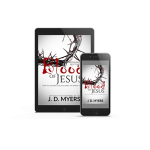
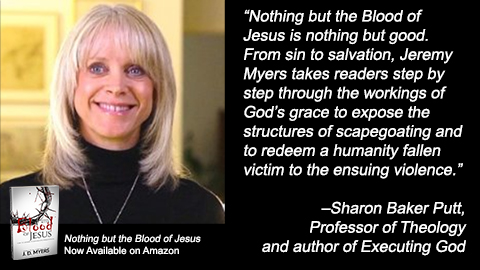
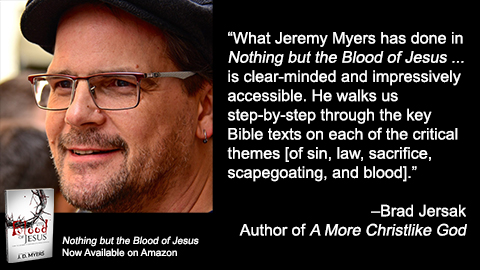
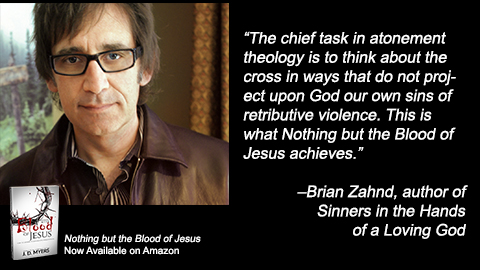
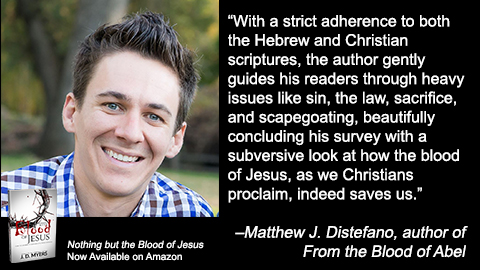
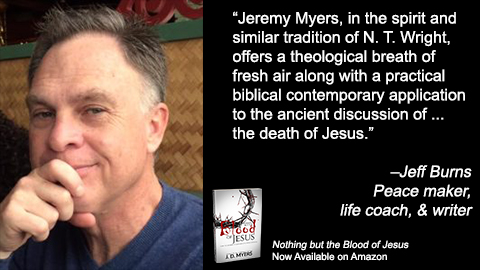
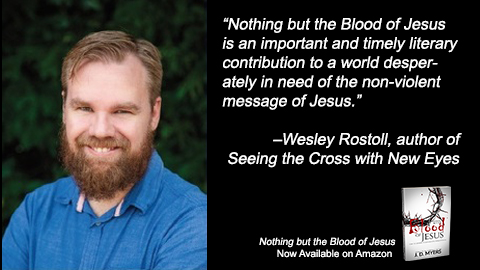
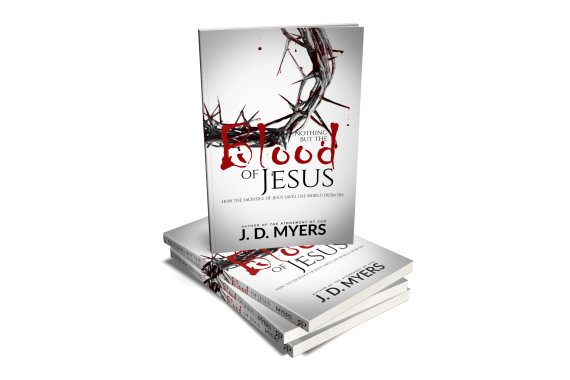


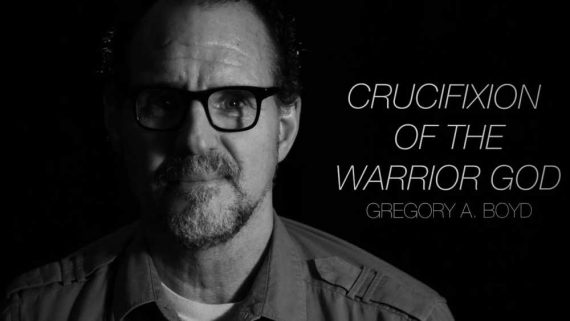
 Even if Greg is right that God abandoned Jesus to sin (which I do not agree with), wouldn’t it be better to say that God abandoned Jesus to sin so that God did not have to abandon us to sin?
Even if Greg is right that God abandoned Jesus to sin (which I do not agree with), wouldn’t it be better to say that God abandoned Jesus to sin so that God did not have to abandon us to sin?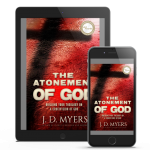
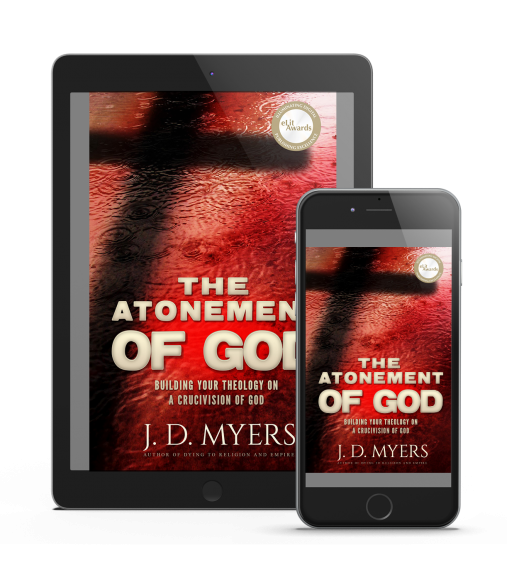

 When you think of hell, what is it you think of? A place of burning? Fire? Demons gleefully torturing people as they scream in terror? If you are like most people, that is likely what the word “hell” brings to mind.
When you think of hell, what is it you think of? A place of burning? Fire? Demons gleefully torturing people as they scream in terror? If you are like most people, that is likely what the word “hell” brings to mind.
